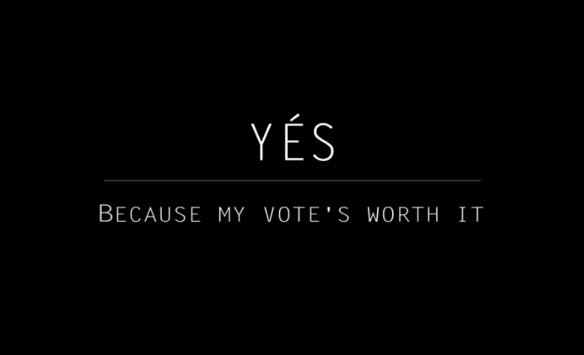Who would try to deny the people of England the right to have the representatives they elect make the decisions which affect them? Certainly not me – I’d love to see a devolved English parliament, or several regional ones, if the people of England wanted that.
But that is not what ‘English votes for English laws’ (EVEL) will be giving anyone. It’s taking something away. What’s more, it’s specifically designed to do just that.
Quite aside from the issues surrounding the Barnett Formula and the impact EVEL could have on the funding of the devolved nations, which I’m sure will be covered in great detail elsewhere, this vote attacks our very democracy.
What this vote takes away is the idea that people across all corners of this ‘United Kingdom’, this ‘family of nations’, are equal. Because from now, we are not.
That probably sounds rather melodramatic, doesn’t it? But it is something which is both easily explained and irrefutable.
What this EVEL vote does is remove any realistic chance of MPs representing constituencies outside England – be that Scotland, Wales or Northern Ireland – of ever again leading a UK-wide party. By extension, that obviously also precludes any realistic chance of a future UK Prime Minister being a representative of any constituency outside England.
Further to that – as if that’s not already bad enough – it greatly decreases any prospect of senior cabinet/shadow-cabinet positions ever being filled by Scottish, Welsh or Northern Irish MPs. That is, of course, excepting for the respective roles of Secretary of State for Scotland/Wales/Northern Ireland.
No, it is not written – they will not be legally prevented from having those roles. But it is, in reality, what will happen.
But, if it’s not written, how will EVEL manage this?
Let me ask you this: What UK-wide political party is going to be prepared to elect a leader who will not be able to vote on a large number of issues at Westminster, affecting 84% of the population? It’s just not going to happen, is it?
Even supposing for a moment that Labour clawed their way back to having a commanding majority of MPs in Scotland again… the UK party is not going to elect one of them to lead them when they will be excluded from all England-only votes. That’s the reality. And the same reality will apply to all UK parties, and for representatives from Wales and Northern Ireland too.
In one casual vote, the Tory UK Government has carved up UK representative democracy for the benefit of themselves alone. They have taken 18% of the MPs in the House of Commons – 117 of them – and told them that they are now excluded from normal parliamentary business. They have turned around to 16.2% of the UK population – 10.3 million of us – and informed us that no, we will most likely never again see a Scottish, Welsh or Northern Irish Prime Minister of the UK – certainly not one representing a constituency in any of those places. They have constructed a new ‘glass ceiling’, crossing from Berwick-upon-Tweed to Gretna, down the north-west coast of England, and straight along the Welsh border.
As suggested at the start of this piece, one or more proper devolved English parliaments – in which representatives are elected separately, as happens in the current devolved parliaments – would pose no issues whatsoever, providing of course that issues which could affect Barnett were still addressed at Westminster. That would be building democracy. That would be constructive and positive, and I’m all for that.
But with this EVEL vote, what the Tories have done is to effectively commandeer Westminster instead. With that, any notion that the UK is a family of equal nations is simply tossed aside. And by the very party who can’t stop babbling on about being ‘true unionists’, no less. That party which claims constantly to be about ‘British values’ – whatever those are supposed to be.
So, the question for people living in Scotland (as well as Wales and Northern Ireland) must now be this: Are you willing to see yourself, your friends, your family, and those you don’t even know, to be forever held back from playing a full role in the democracy of the UK? And, if you voted No last year, were you not expecting things to carry on as before, and are you happy to now be phased-out by those who claimed to want us to stay so much?
By 312 votes to 270, this Tory Government yesterday signed the death warrant for the UK. It must be. It has to be. If not – if we are prepared to sit back and allow this – then we will truly deserve anything we get.

Left: UK PM/party leader/senior cabinet member catchment area, until 2015
Right: catchment area post-2015.
This isn’t about Scotland. It’s not about England either. It’s about what we have and what we are about to lose. And it’s about recognising that that is totally unacceptable, and doing something about it.
I’m not willing to give up on my principles or my democratic and constitutional rights, and I would sincerely hope that anyone reading this understands the importance of this, no matter what their own personal political beliefs are. This is important. This is a defining moment. This is closing time for UK plc.





